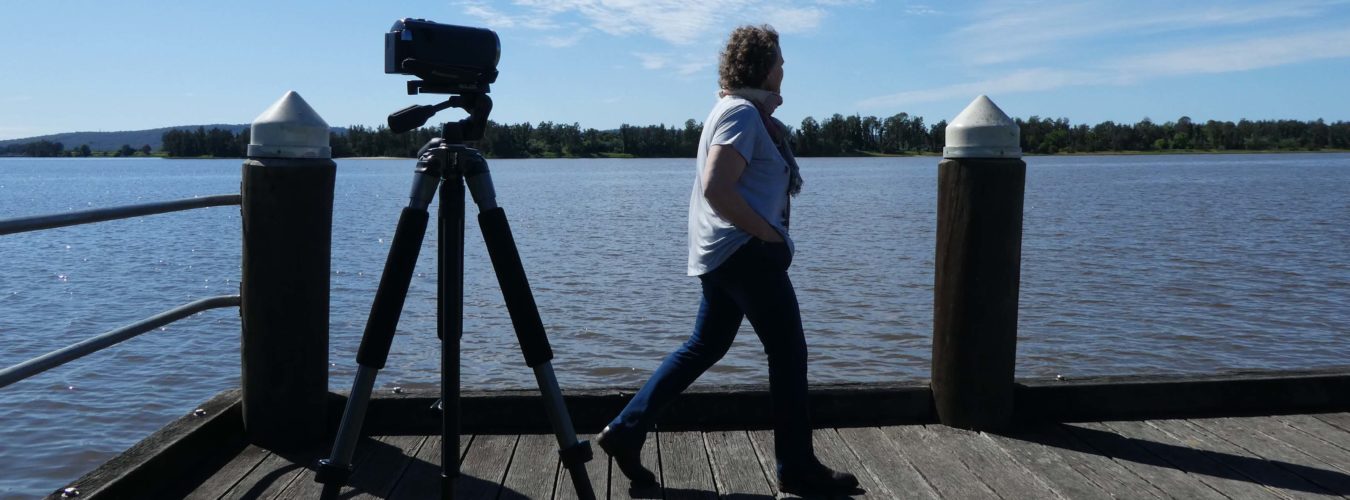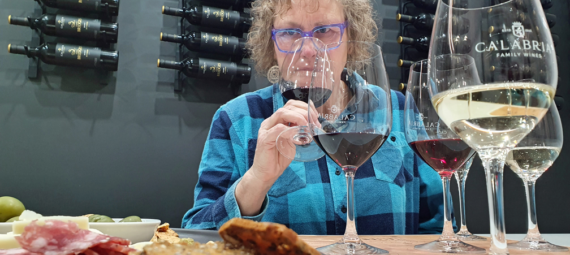August 2022 – Wiradjuri Country
We were inspired to visit the Riverina town of Griffith by its reputation for good food and wine.
You’d expected nothing less from a town in the middle of the premium regional food growing area of NSW where 60 per cent of the population can claim Italian heritage.
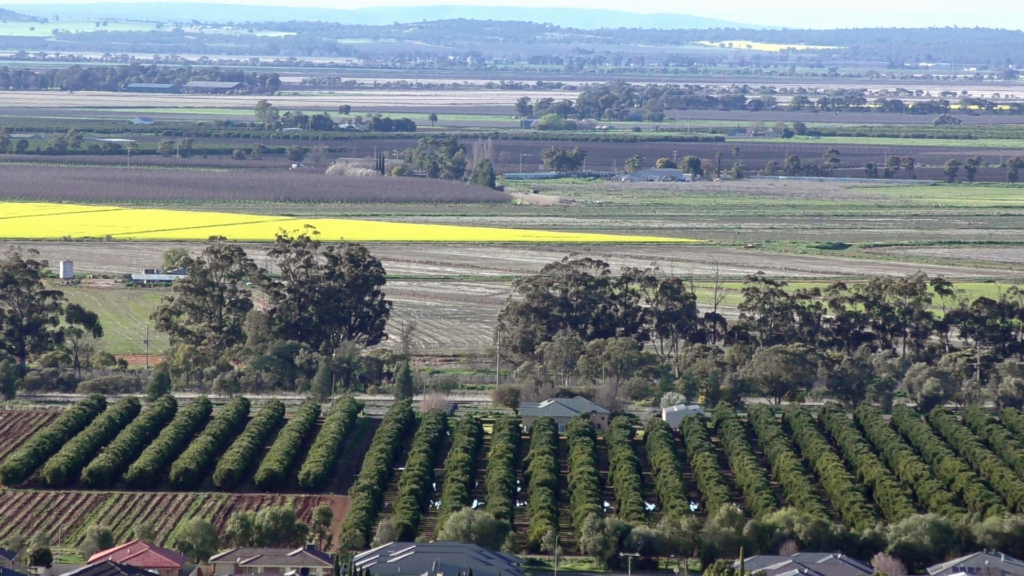
As luck would have it, we arrived in the lead up to the annual Italian Festival, so all delicious things Italian were even more prominent than usual.
There was nothing for it but to make our visit an exploration of the town’s Italianness and if that meant eating and drinking our own body weight in delectable Italian inspired fare, then bring it on.
The back story
Griffith was established in 1916 as part of the new Murrumbidgee Irrigation Area (MIA). The MIA was created to control and divert the flow of river and creek systems (mostly the Murrumbidgee and the Tumut Rivers) so that the notoriously dry areas of the Riverina could be transformed for food production.
It eventually worked a treat, and the region is now one of the most diverse and productive regions in Australia contributing billions annually to the Australian economy. You can barely drive a few kilometres without passing a vinyard, orange orchard, grove of almond trees, canola and a myriad of other cash crops.
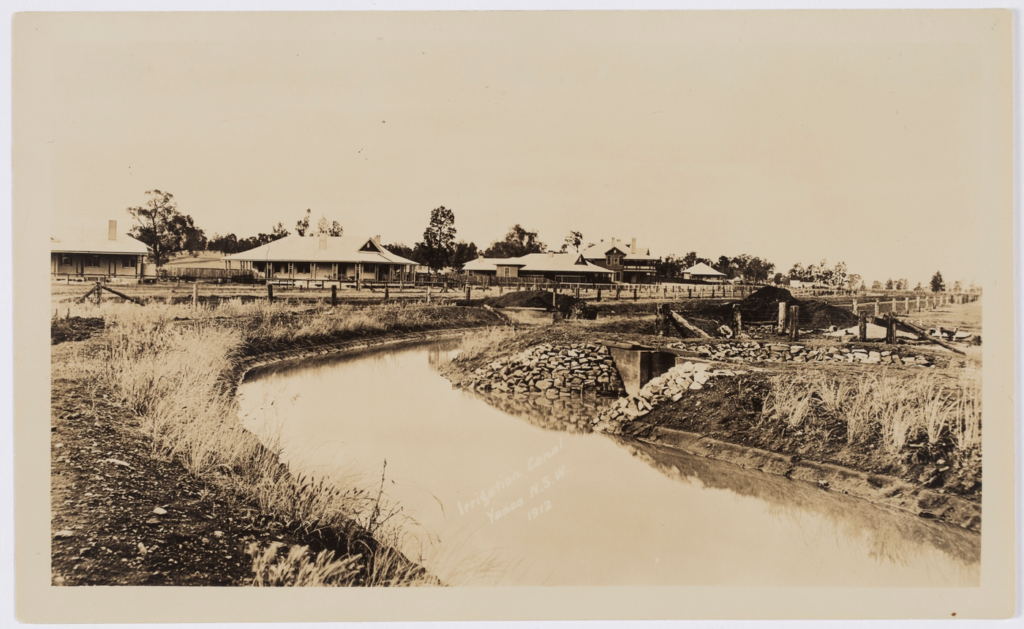
To start with, returned servicemen and assisted British migrants were encouraged to take up irrigation blocks after the First World War, because the MIA had failed to attract much in the way of volunteer settlers. By the late 1920s most of the soldier-settlers and Brittish immigrants had relinquished their holdings because they lacked farming experience, depressed economic conditions and numerous other problems associated with the new scheme.
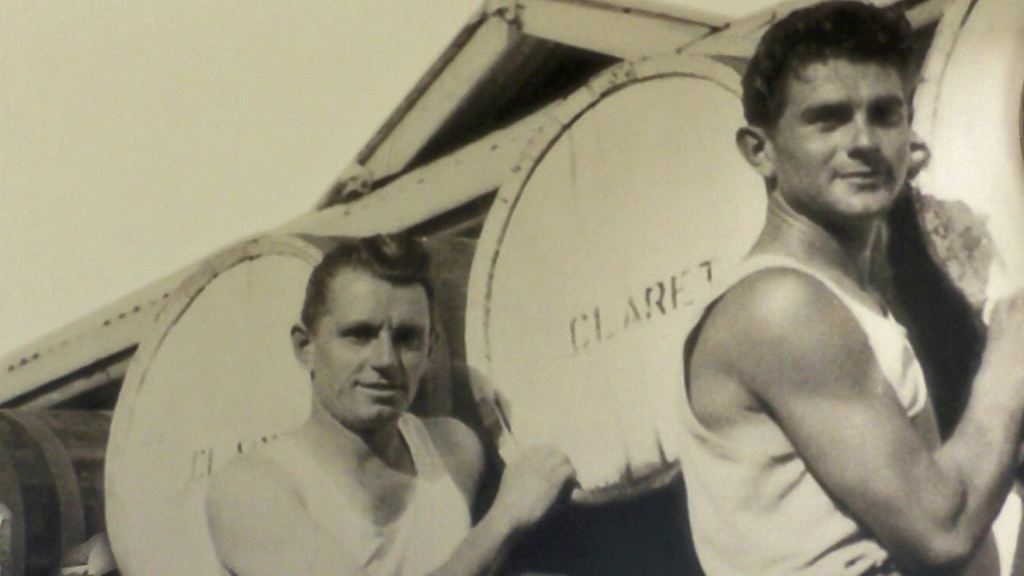
Enter the Italians, whose skill and determination would ultimately result in success. Most of the early Italians came from the Veneto region in the north of Italy. During the 1930s the number of Italians from Calabria, Sicily and other regions settled in growing numbers. Their farming success attracted a further wave of Italian migration to Griffith after WWII.
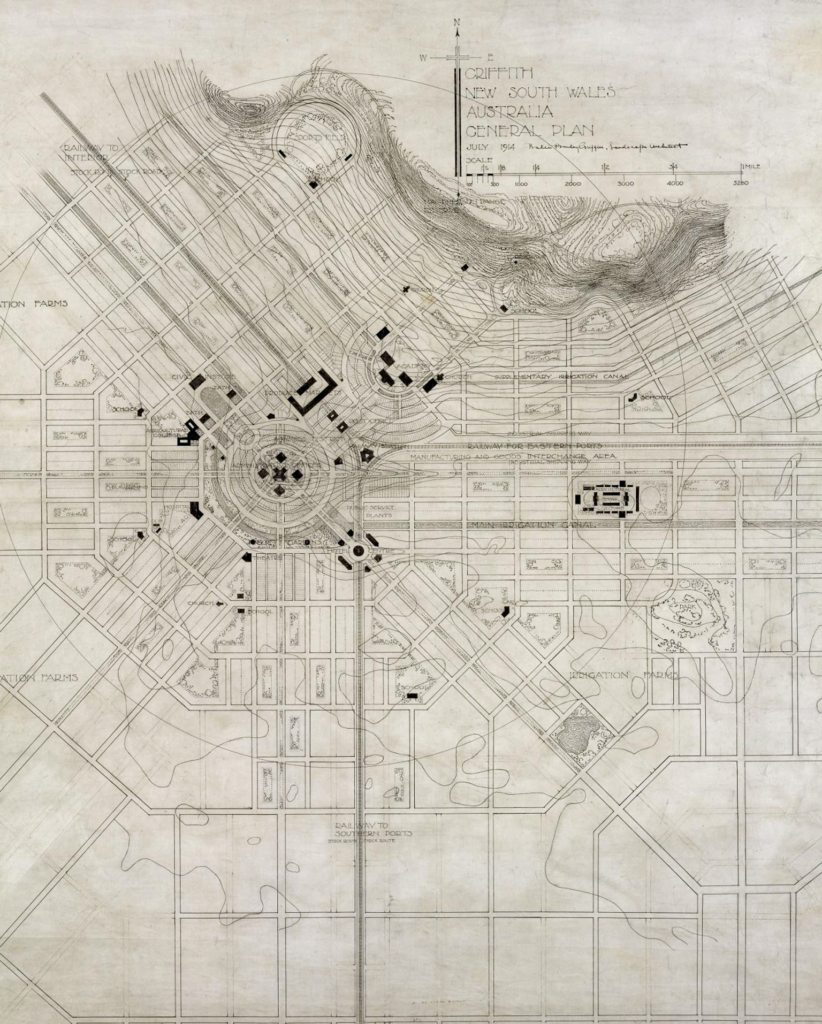
Griffith is the largest town in the Riverina and was designed by architect and town planner Walter Burley Griffin who famously also designed the Australian capital, Canberra. Echos of Canberra’s design can be found in Griffith’s cicular street patterns, parks and wide streets. The Main Canal for irrigation runs right through the town and was incorporated into Burley Griffin’s original designs. Griffith is one of just a handful of towns in NSW established in the 20th century.
What we did
Zecca Handmade Italian
Don’t leave town without trying Zecca! Their website promises a “laidback, casual Italian eatery dedicated to providing an authentic, fun and memorable experience” – and it delivers. We called in for lunch after a morning of bushwalking so we had worked up an appetite. We kicked off with some antipasto (delicious) and followed up with fresh made pasta.
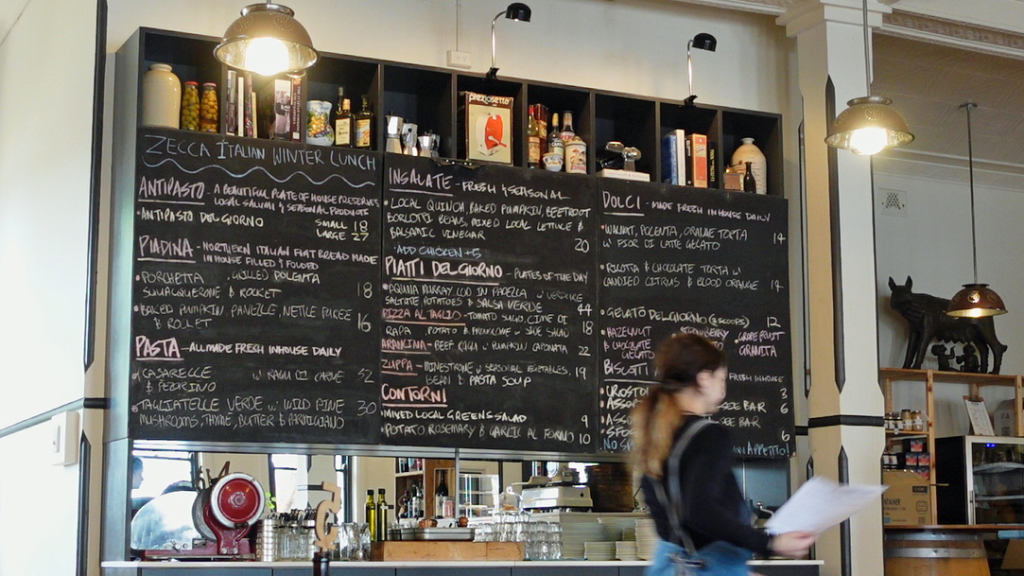
Choices on the day were Casarecce with ragu di carne and pecorino and tagiatelle verde with pine mushrooms, thyme butter and parmigiano. Satisfaction all ’round. Washed down with a glass of local Italian red.
What more could you ask for? Well, dessert, that’s what. Ricotta and Chocolate torta with candid citrus and blood orange, topped the whole thing off.
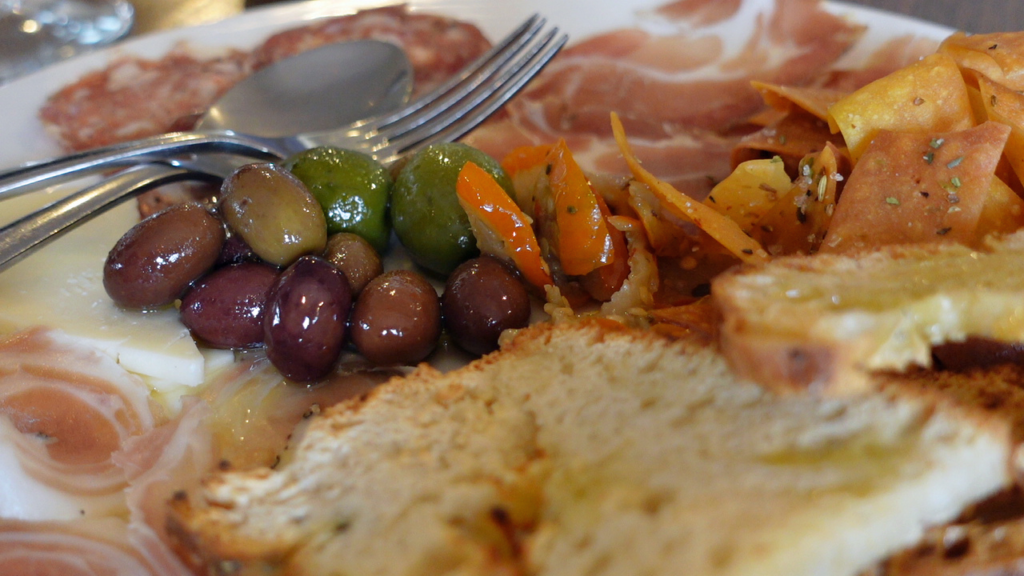
Lovers of culinary and social history will enjoy the fact that Zecca tries to bring some long lost recipes back to life and uses unusual and obscure pasta shapes in its fare. It’s housed inside the 1930s art deco former Rural Bank. The name Zecca means mint or money press in Italian.
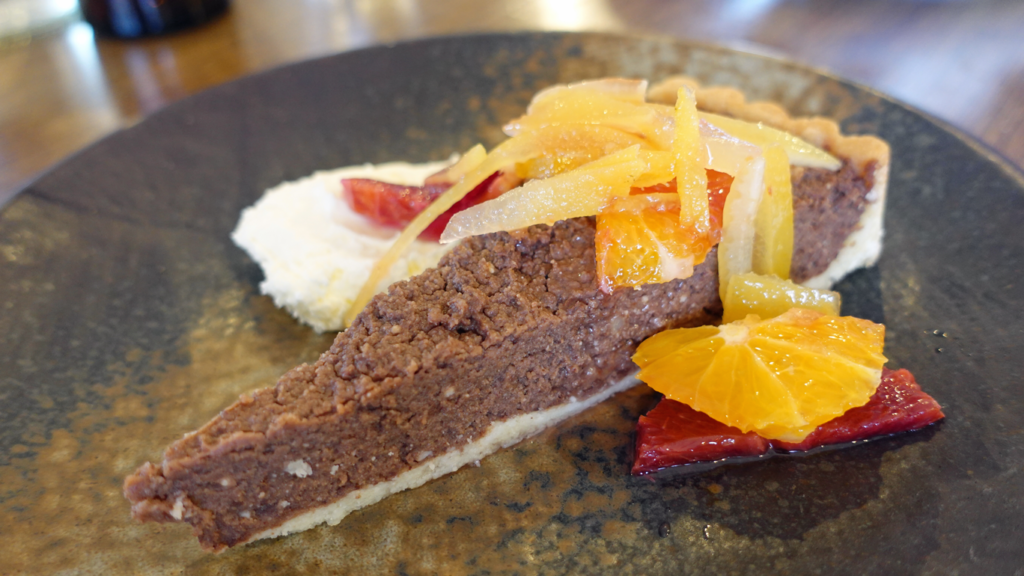
Bertoldo’s Pasticceria
It’s said that nothing symbolises Griffith’s Italian heritage quite like Bertoldo’s – a bakery run by generartions of the same family since 1952. That’s 70 years! Robert Menzies was the Prime Minister when the Bertoldo family took over the bakery in Banna Avenue and began making Italian bread, biscotti, cannoli, gelato and nougat.
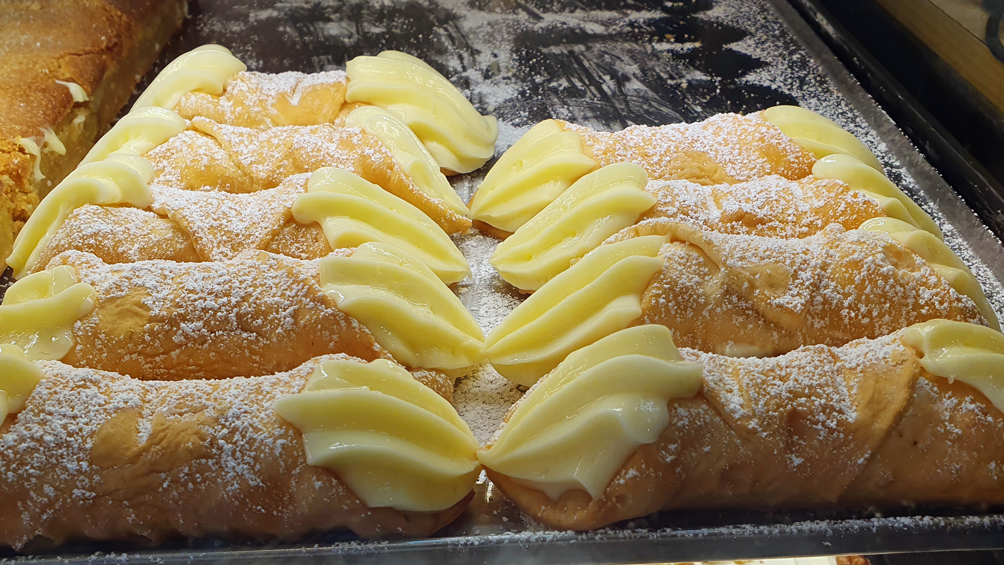
It’s a much-loved local institution and if the constant throng of customers is anything to go by, it’s as good as it ever was. We popped in for a cannoli and a coffee, then a few days later for a gelato. Put it on your must do list.
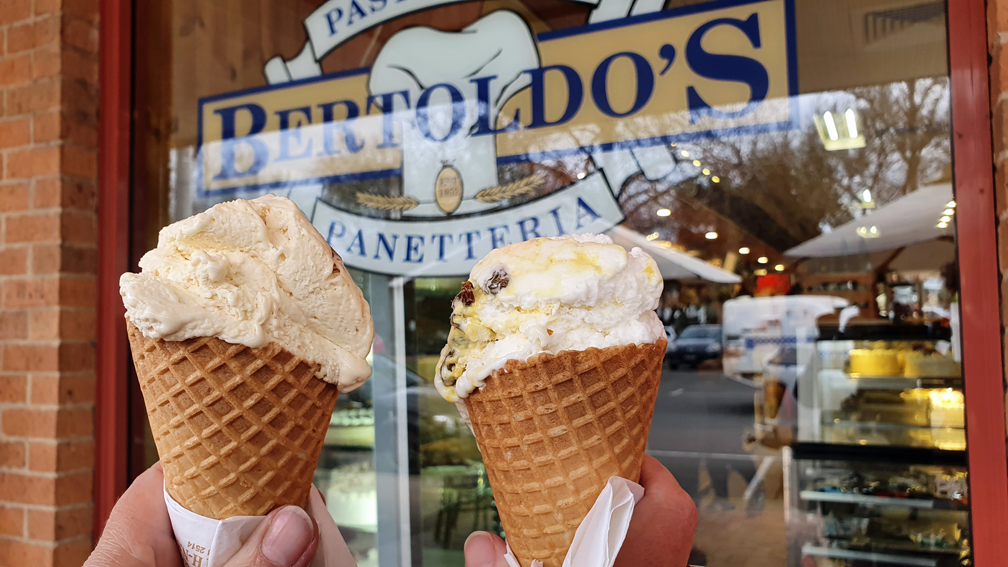
Calabria Family Wines
We enjoyed a delightful few hours at this 75 year old Griffith winery whose story is a quintessential one of an Italin immigrant family. It’s a story of determination and hardwork which has lead to award winning success. Yet it retains an intimacy and friendliness that comes from the same family running and operating the show for such a long time.
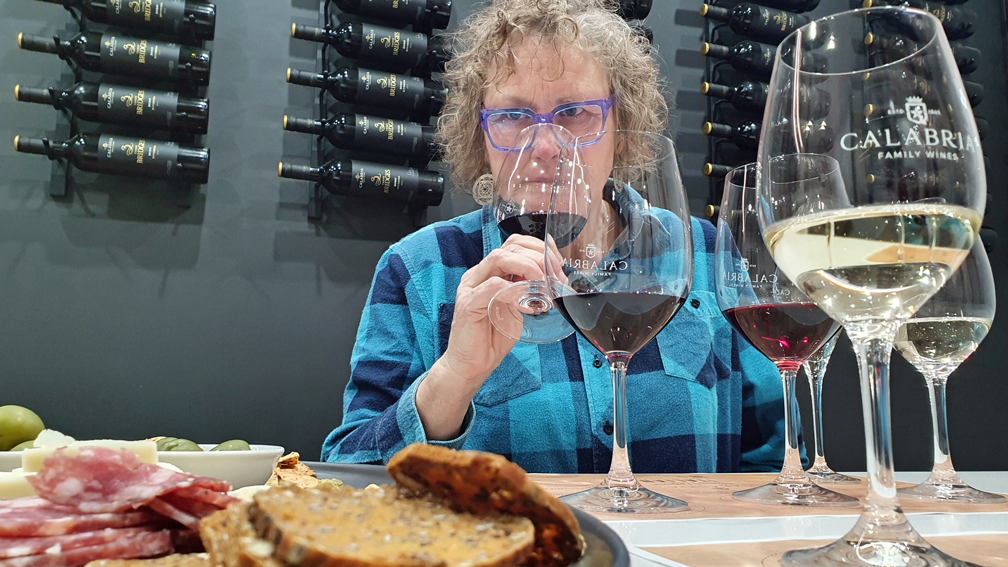
Winemaker and family patriarch Bill Calabria came over for a chat. He’s the second generation of the Calabria family to devote a lifetime winemaking. His daughter Elizabeth made sure we settled in for a tasting adventure and looked after us. We left happy with a couple bottles of excellent Belena Sangiovese under our arm for later.
The Italian IGA
We don’t usually talk about supermarkets here – but this one cannot be left out of any discussion about the Italianness of Griffith. The Italian Fresh Mercato is within the local IGA and has developed an astonishing Italian food wonderland for those who want to recreate authentic Italian food at home.
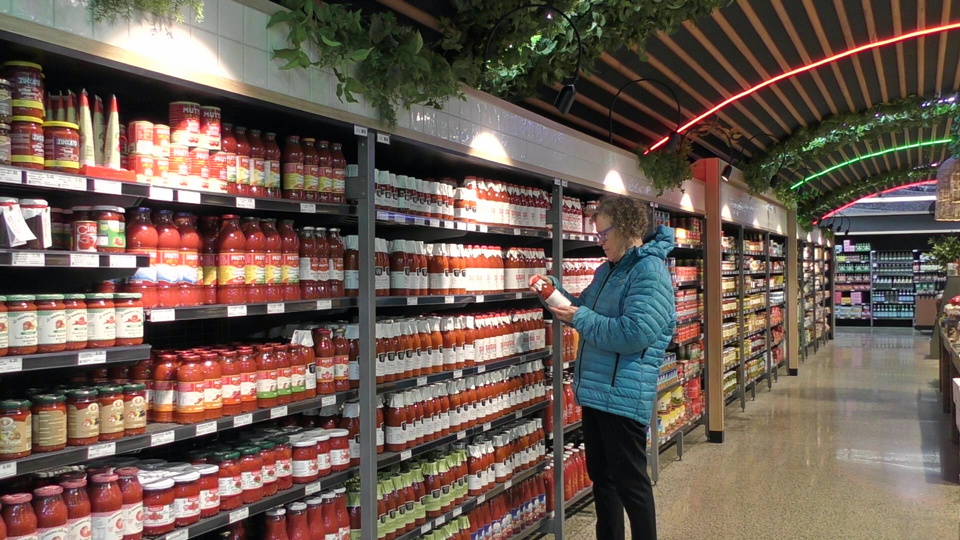
You will find here pantry staples but but also handmade produce, deli goods, imported cheeses, quality meats and local wines. It’s locally owned and definitely worth a wander. There were so many types of cheese and salami I honestly didn’t know what to do!
Italian Museum and Cultural Centre
You will find this within the facinating Pioneer Park Complex – which covers the history of the local region. In itself the park is well worth a look if you are keen on local history. However, as we were on an exploration of Italian heritage, we headed to the Italian Museum first .
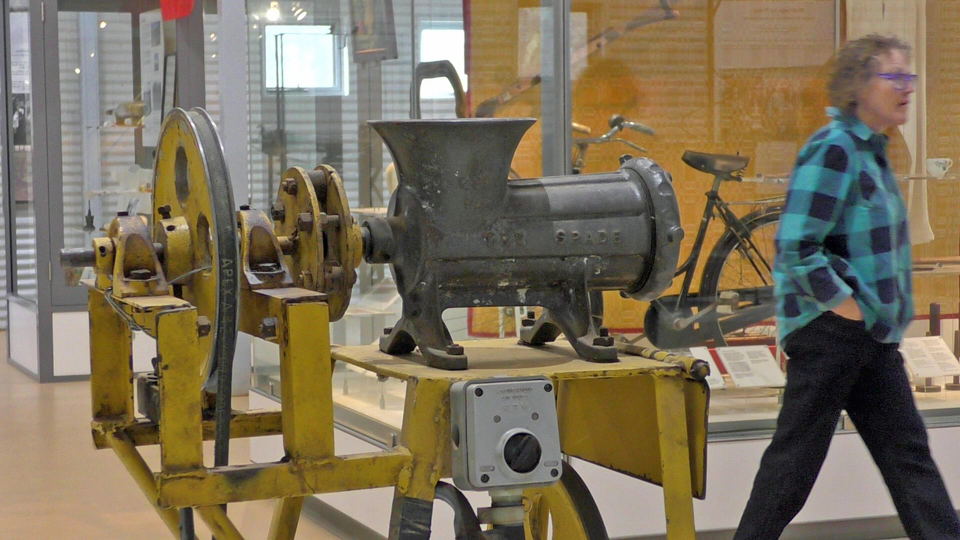
Here you will find curated details of the amazing contribution of the Italian community to the social, cultural and physical development of Griffith and the Murrumbidgee Irrigation Area. What they achieved cannot be understated. It’s a poignant story on so many levels. Grit. Determination. Endless challenges. Successes and failures. Wine and food and family. The centre will give you great insight into it all.
Hermit’s Cave
The name of this heritage listed complex of stone structures on Scenic Hill on Griffith’s northern outskirts belies what is a sad story of lonliness and possibly mental illness.
The views from up there beautiful. You can still see parts of the structures that made this such a famous local story. I would note, that for a heritage listed site, it needs a revamp. Fading interpretive signs which once guided you through Ricetti’s curious cave complex need replacing and updating.
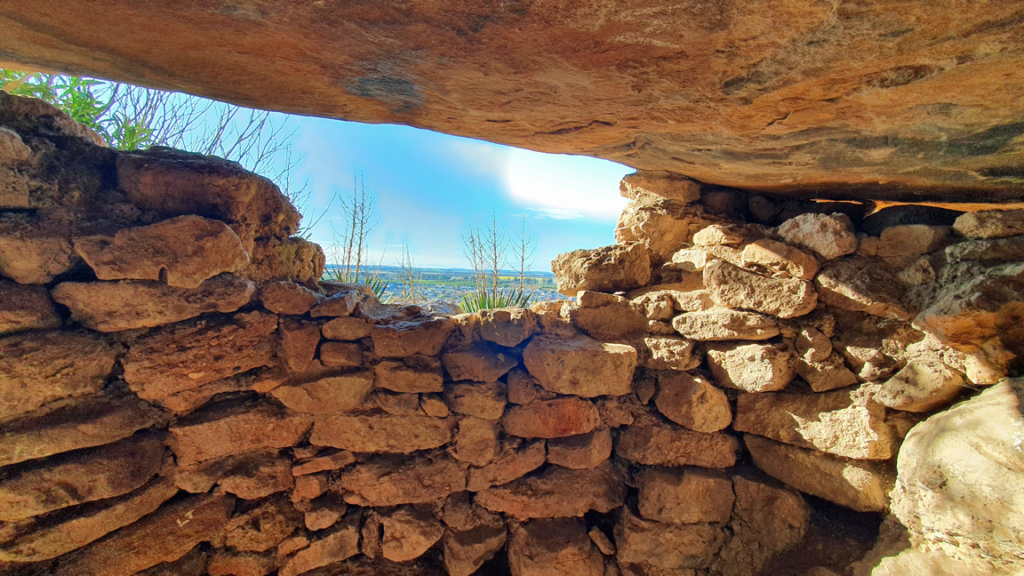
It was here that Italian immigrant Valerio Ricetti built his extraordinary “castle on the hill” – a complex of shelters, terraced gardens, exotic plants, water-cisterns, dry-stone walling and linking bridges, stairways and paths that stretch intermittently across more than a kilometre of the escarpment.
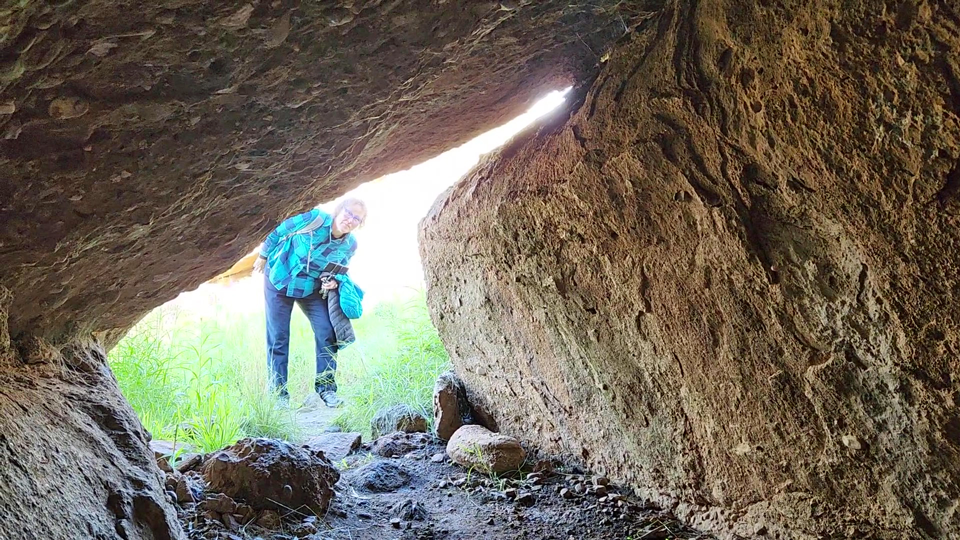
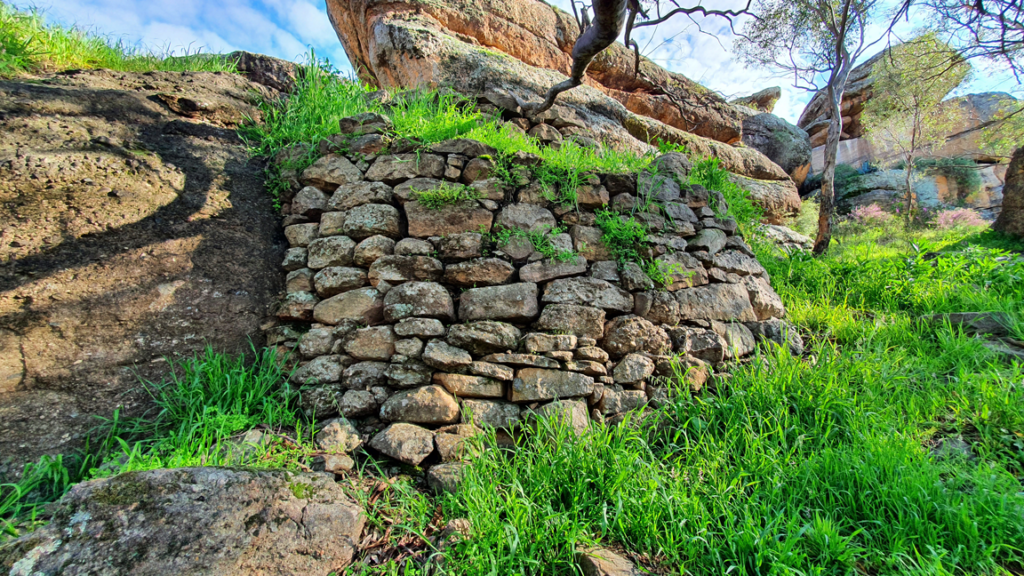
There is much specualtion about what brought this lonely recluse to Griffith in the 1930s and what inspired him to build his unique and ingenious home. Some say he was running from a failed love affair, but for me at least that seems to fall short.
At any rate, he set about moving hundreds of tonnes of stone and earth which he wove into the landscape – and proceeded to live there high above Griffith for decades.
During WWII the poor harmless bloke was locked up in POW camps as so many “foreigners” were at the time. If anything broke his heart, it feels like this experience might have been part of it and he was never allowed to return to his rocky home to live. In failing health, he returned to Italy to visit his estranged brother, and died there in 1952.
Street art
Lovers of street art won’t be disappointed. The city has created an impressive gallery of murals along Banna Lane which capture various aspects of the local region.
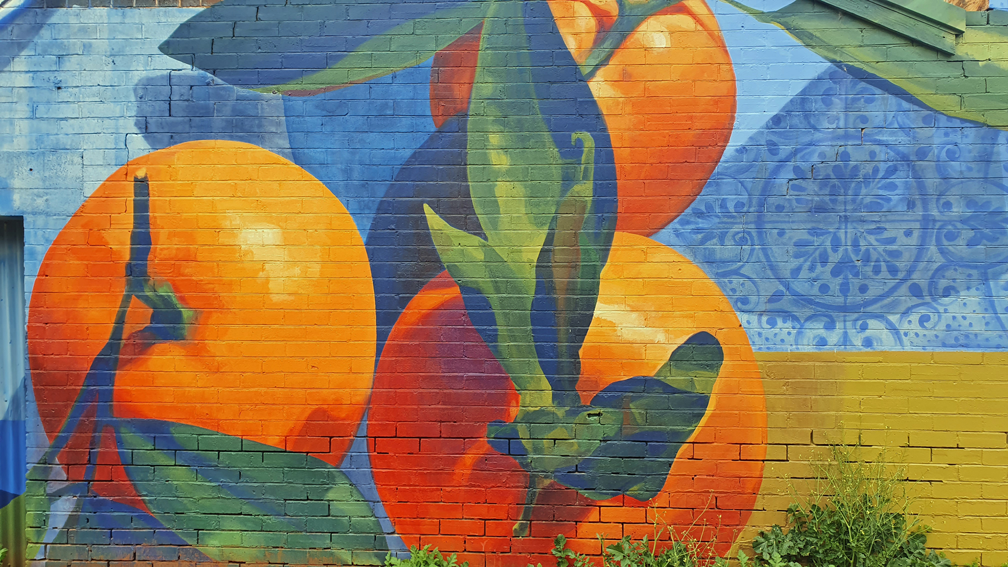
Works are painted by some of Australia’s leading mural artists. Weekend afternoons are probably better – you can see the works without having to negotiate the usual amount of traffic.
Cocopara National Park
We headed out to Cocoparra National Park, about half an hour’s drive from Griffith. The name of this picturesque 8375 hectare park is said to come from the Aboriginal word cocupara, meaning kookaburra. The park incapsulates a range of rocky hills intersected by gorges at the bottom of which, due to the endless rain of the last year, creeks were flowing.
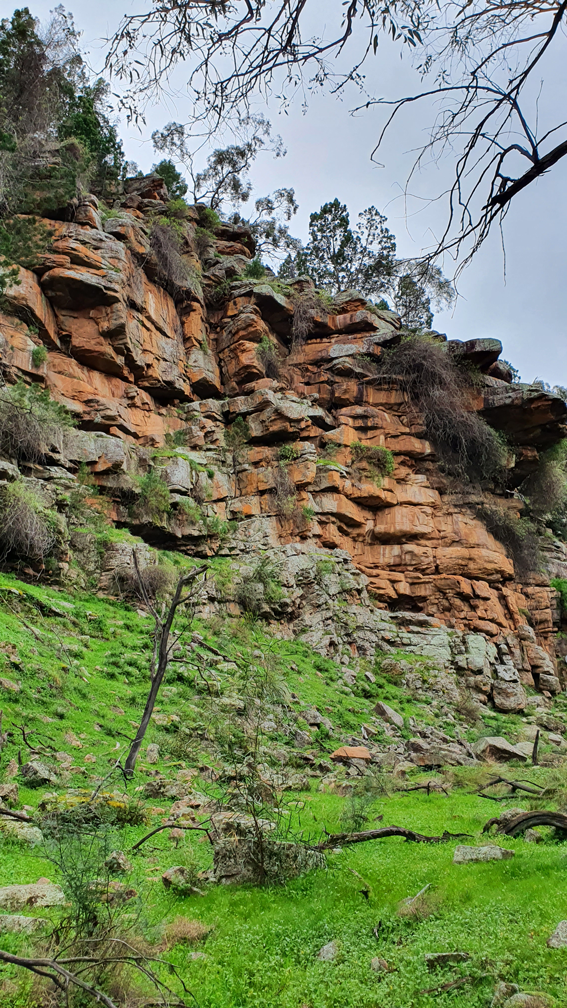
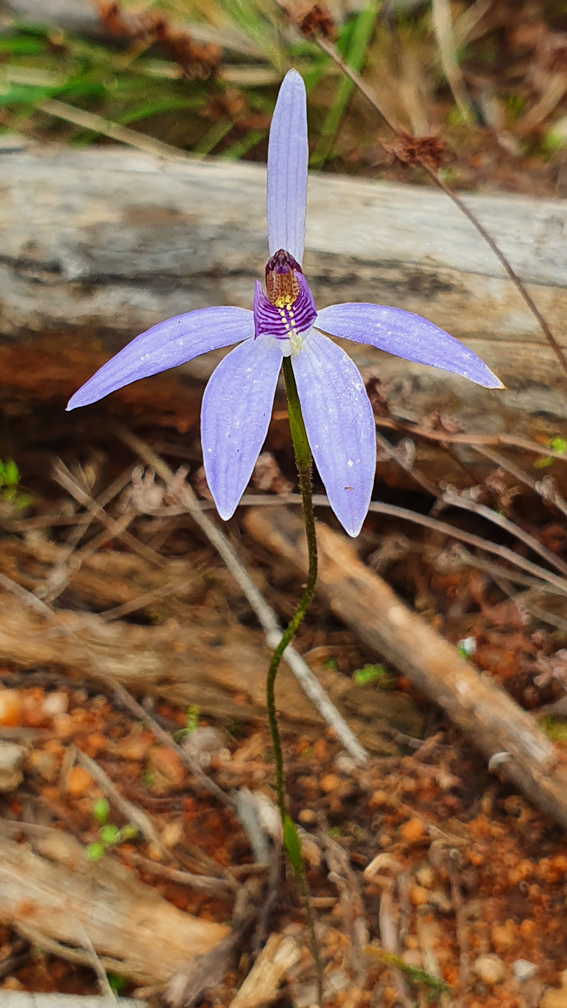
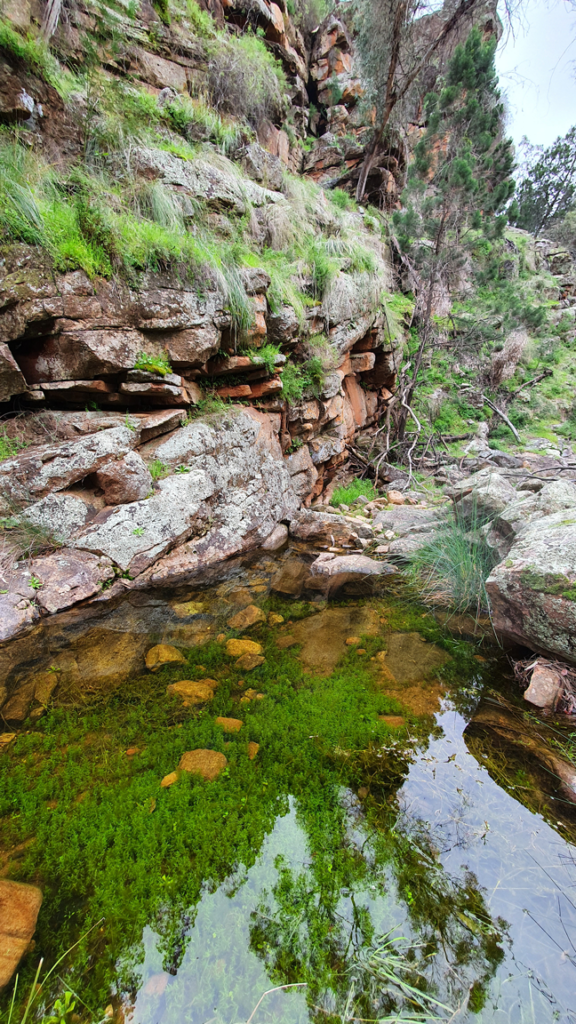
We took two shortish walks at Store Creek and Jack’s Creek and these were really beautiful. Rugged cliffs rose on either side above the walking track and there was the constant gurgle of a small creek. Wattle was coming into bloom among the blue cypress pine. Tiny orchids could be seen here and there.
